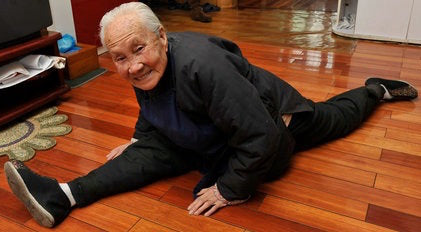How do you feel about growing older?
A 2016 research study published in the Journal of Gerontology: Psychological Sciences, showed that our outlook on aging could affect how we deal with the stress of daily life.
Past research on how older adults react to stress has produced a variety of results, according to Jennifer Bellingtier, Ph.D. North Carolina State University, and lead author on the study. Some studies show that older individuals handle stress better compared to their younger peers, while others find older adults are worse off. Some show that both groups fare about the same. “We thought aging attitudes could be a factor that explains why these results are all over the place,” Bellingtier says.“The research base is definitely building that it’s important to have positive attitudes toward aging,” she explains. Adults who hold a more negative view of aging report lower levels of life satisfaction, well-being, and social supports, and they’re more likely to be hospitalized or to die young.
Now there is even more evidence of the importance our attitude toward aging plays in our health and longevity. The Yale News reports a new study led by the Yale School of Public Health shows that older persons who have positive beliefs about old age from their surrounding culture are less likely to develop dementia. "This protective effect was found for all participants, as well as among those carrying a gene that puts them at higher risk of developing dementia.The ε4 variant of the APOE gene —were nearly 50% less likely to develop the disease than their peers who held negative age beliefs."
Lead author Becca Levy says; "This makes a case for implementing a public health campaign against ageism, which is a source of negative age beliefs.”
Not that we need a reason to fight agism, but every little bit of hard evidence helps!
Previous research by Levy and colleagues has shown that positive age beliefs can be strengthened.
In a 2014 article for the Gerontologist Leni Marshall wrote: Ageist assumptions about old people are enacted across the life span. Some quantity of positive change is fairly easy to effect because “the average person has about as many misconceptions about aging as correct conceptions”. Conditions proven to create change include extended contact with elder coworkers, increased understanding of aging as a life-long process , and an influx of information followed by a discussion about ageism.
Watch this great video from AARP ...
Did this change your attitude about aging ? If the answer is yes - Good for you and your brain!


